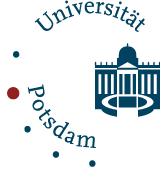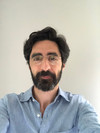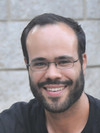Jewish Religious and Intellectual History
Jewish religious and intellectual history explores how Judaism and Jewish theology have developed, as over the centuries they have encountered and engaged different cultures. The development of the Halakhah, the interpretation of the Bible and the Talmud, Jewish philosophy and liturgy have all been shaped by the political, social, economic and cultural contexts of Jewish life.
Maimonides' (1138-1204) thought was imbedded in the Jewish and Arabic high culture of his time. The Jewish liturgy has responded and again to crucial events and the changing life worlds of Jews. The Reform movement emerged in the context of the hoped-for legal emancipation.
These examples illustrate how studying religious and intellectual history complements the other sub-disciplines of Jewish theology and connects them to historical developments external to Judaism.
Prof. Dr. Jonathan Schorsch
Campus Am Neuen Palais / building 15, room 2.01
E-Mail: jschorschuuni-potsdampde
Academic Staff
Michael Lesley
Campus Am Neuen Palais / Haus 15, Raum 2.06
E-Mail: michael.lesleyuuni-potsdampde
Sprechzeiten: Tuesday, 1 - 2 p.m. | please register by mail
Michael Lesley is completing a doctorate at Harvard University on the origins of German philosophical antisemitism in German enlightenment theology.
He has a BA and MA in Jewish Studies from the University of Maryland, College Park, where he worked on Qumran and biblical literature.
His fields of interest include the history of biblical interpretation, the history of liberal religion, German-Jewish history and thought, political theory and religion, and the history of antisemitism.
Hugo Martins, Dr.
DAAD PRIME Fellow
Campus Am Neuen Palais / Haus 15, Raum 2.06
Tel.: (+49)331/977-1758
Sprechzeiten: n.V.
My current research focuses on how the legal, economic, and political issues of the Portuguese Nation of Hamburg were closely linked with the resolution of commercial disputes and the mechanics of conflict resolution both in Hamburg and beyond it during the seventeenth century. By tracing the development of Sephardic proceedings in communal, state, and imperial jurisdictions, my work seeks to understand the true extent of the Portuguese Nation's involvement in early modern German courts, how this influence was cultivated, justified, and applied and, above all, its long-term social and political impact both within and beyond the Jewish world
Assistance to the chair
Mr. Heinz Jantzen, M.A.
Campus Am Neuen Palais
Haus 2, Raum 2.10
consulting hours
Mo-Tue: all day and by appointement





